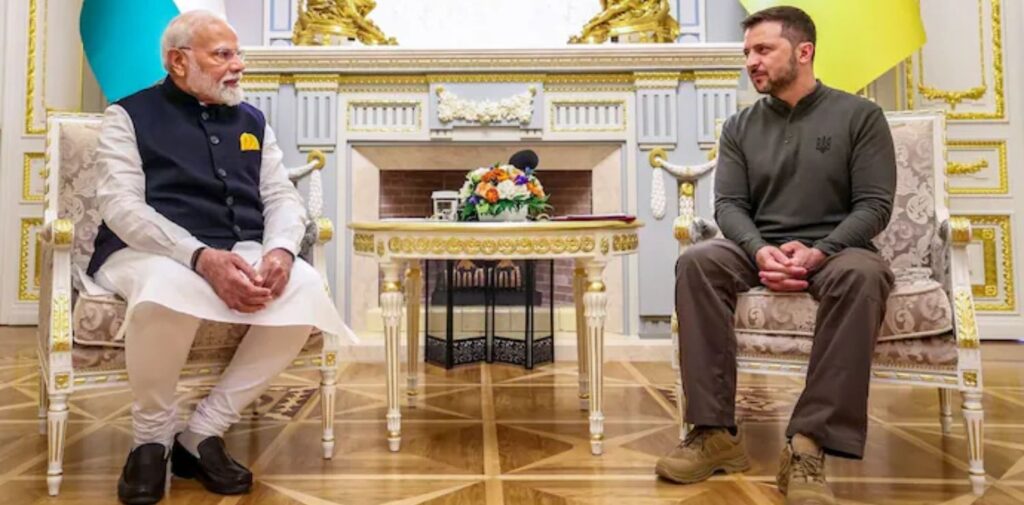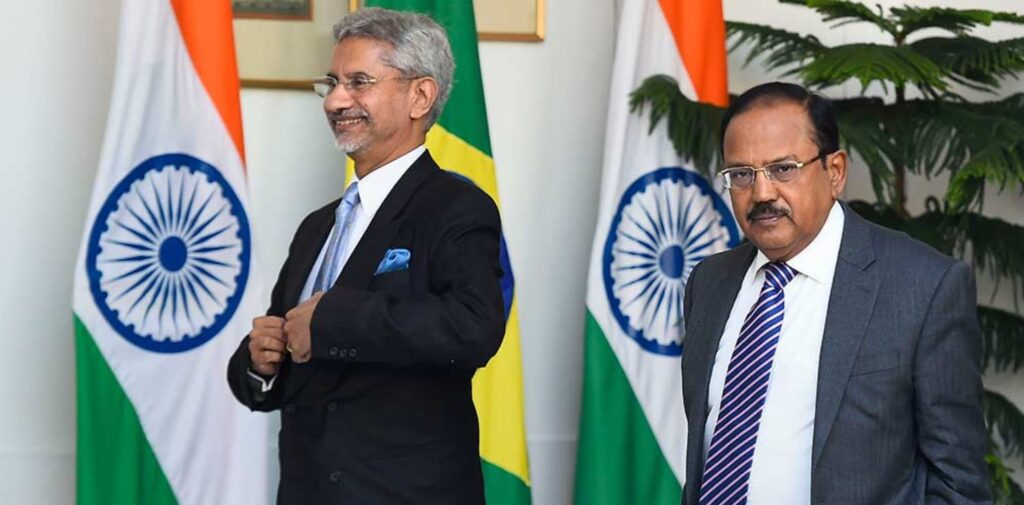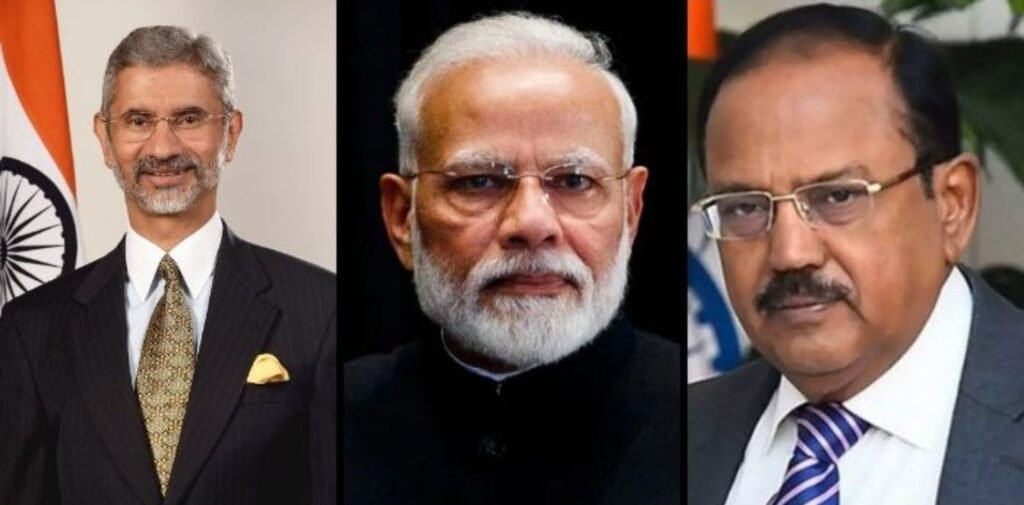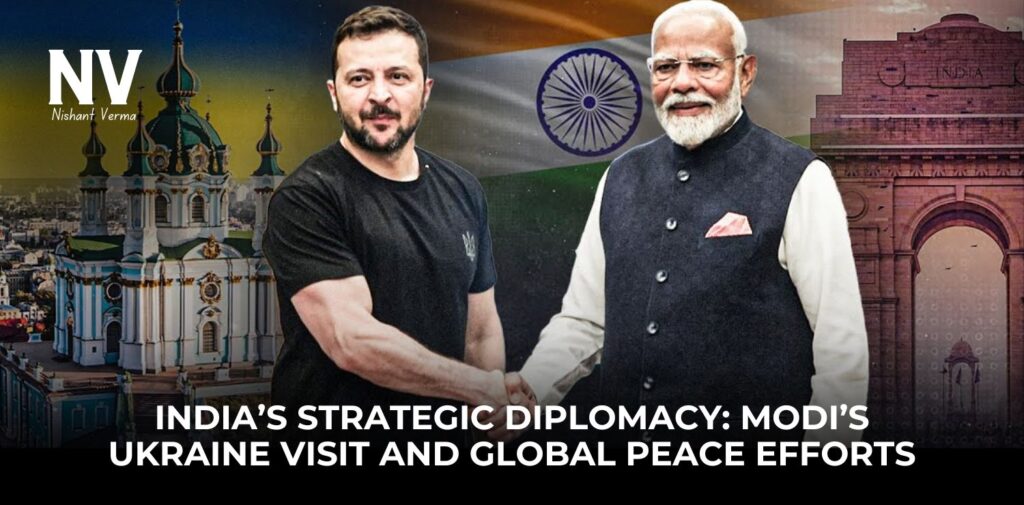India’s recent foray into the Ukraine-Russia conflict represents a significant development in global diplomacy, underscoring the country’s growing role on the international stage. Prime Minister Narendra Modi’s visit to Ukraine, coupled with the strategic engagement of National Security Advisor Ajit Doval and Foreign Minister S. Jaishankar, marks a pivotal moment in the quest for global peace and stability. This initiative highlights India’s commitment to addressing complex international issues and its intention to foster dialogue in resolving one of the most pressing conflicts of our time.

Prime Minister Modi’s Diplomatic Mission
Prime Minister Narendra Modi’s visit to Ukraine is not merely a symbolic gesture but a testament to India’s evolving foreign policy. The visit took place amid the ongoing conflict between Ukraine and Russia, which has had far-reaching implications for global security and stability. By choosing to meet with President Volodymyr Zelenskyy, Modi signaled India’s intent to play a more proactive role in seeking a resolution to the conflict.
This diplomatic engagement reflects a nuanced approach from India, which has historically maintained strong ties with Russia while now acknowledging the importance of engaging with Ukraine. Modi’s visit is indicative of India’s balanced foreign policy, which seeks to harmonize its historical relationships with contemporary geopolitical realities. The visit also underscores India’s broader strategy of positioning itself as a key player in international diplomacy and conflict resolution.
During his visit, Modi and Zelenskyy discussed a range of issues pertinent to the conflict and explored potential avenues for peace. Modi’s interactions with Zelenskyy were characterized by a constructive dialogue aimed at understanding Ukraine’s perspective and exploring ways in which India could contribute to the peace process. This approach is reflective of India’s broader diplomatic strategy, which emphasizes engagement, dialogue, and a commitment to finding peaceful solutions to global conflicts.

The Strategic Roles of Ajit Doval and S. Jaishankar
Central to India’s diplomatic efforts in the Ukraine-Russia conflict are National Security Advisor Ajit Doval and Foreign Minister S. Jaishankar. Their roles are instrumental in shaping India’s approach to this complex issue.
Ajit Doval, with his extensive experience in security and strategic affairs, plays a crucial role in navigating the intricate dynamics of international conflicts. Doval’s expertise in security policy and his deep understanding of geopolitical strategies make him a key figure in India’s diplomatic mission. His involvement in the Ukraine conflict highlights his capacity to address and influence global security issues through a strategic lens.
Doval’s role extends beyond mere advisory functions; he is actively involved in shaping and implementing policies that align with India’s strategic interests. His engagement in the Ukraine-Russia conflict involves assessing the security implications of the conflict and formulating strategies that align with India’s foreign policy objectives. Doval’s strategic insights are pivotal in ensuring that India’s diplomatic efforts are grounded in a thorough understanding of the security landscape.
On the other hand, Foreign Minister S. Jaishankar brings a wealth of experience in foreign diplomacy to the table. Jaishankar’s approach to diplomacy is characterized by a focus on dialogue and negotiation, which is essential for addressing the complexities of the Ukraine-Russia conflict. His adept handling of international relations and his skills in negotiation are crucial in facilitating discussions between conflicting parties and working towards a peaceful resolution.
Jaishankar’s role involves engaging with various international stakeholders, including both state and non-state actors, to build consensus and promote dialogue. His diplomatic efforts are aimed at bridging gaps between conflicting parties and advancing India’s interests in the global arena. Jaishankar’s experience in managing diplomatic relations and his ability to navigate complex international issues are instrumental in shaping India’s approach to the Ukraine-Russia conflict.

Global Impact and Future Prospects
India’s involvement in the Ukraine-Russia conflict has significant implications for global peace and stability. The combined efforts of Modi, Doval, and Jaishankar reflect India’s broader strategy of fostering international stability and promoting dialogue over discord. Their collective expertise positions India as a crucial player in resolving global conflicts and reinforcing its role on the world stage.
The strategic visit by Modi and the ongoing diplomatic efforts by Doval and Jaishankar are poised to make a substantial impact on the resolution of the Ukraine-Russia war. India’s engagement in this conflict highlights its potential to influence global peace processes and contribute to the stabilization of international relations. By leveraging its diplomatic and strategic assets, India is not only advocating for peace but also affirming its role as a key mediator in global conflicts.
In the broader context, India’s diplomatic efforts in the Ukraine-Russia conflict reflect a shift in global power dynamics, where emerging powers like India are playing increasingly significant roles in shaping international affairs. India’s proactive approach to diplomacy and conflict resolution underscores its commitment to addressing global challenges and contributing to a more stable and peaceful world order.
The future prospects of India’s involvement in the Ukraine-Russia conflict will likely involve continued engagement with both Ukrainian and Russian stakeholders, as well as collaboration with other international actors. India’s ability to navigate the complexities of the conflict and foster dialogue will be crucial in advancing peace efforts and addressing the underlying issues that have contributed to the ongoing conflict.
In conclusion, India’s diplomatic initiative in the Ukraine-Russia conflict, led by Prime Minister Modi and supported by key figures like Ajit Doval and S. Jaishankar, represents a significant contribution to global peace efforts. The strategic engagement and nuanced approach reflect India’s growing influence in international diplomacy and its commitment to resolving global conflicts through dialogue and constructive engagement. As the situation evolves, India’s role in the peace process will continue to be a critical factor in shaping the future of global stability and security.




